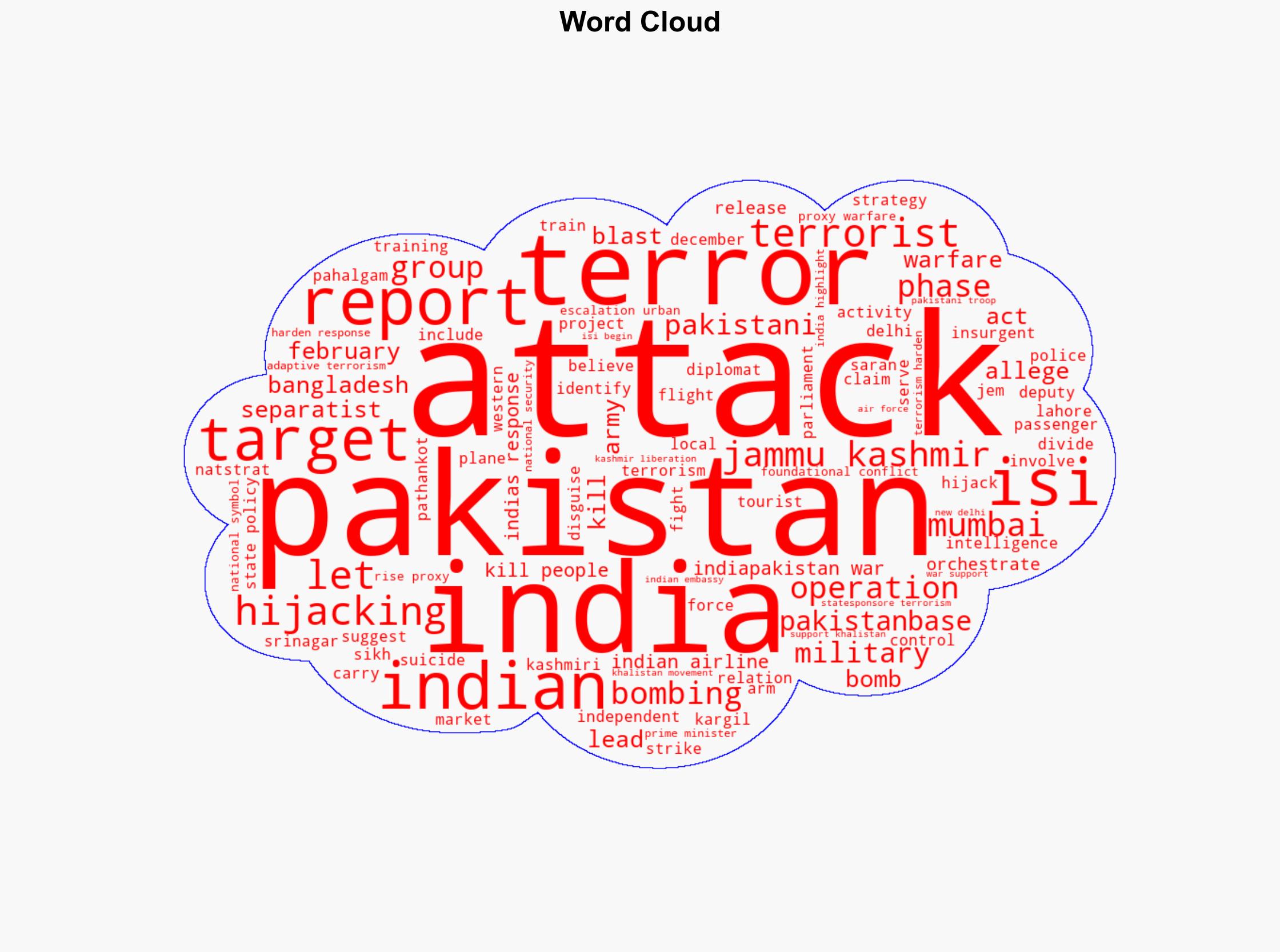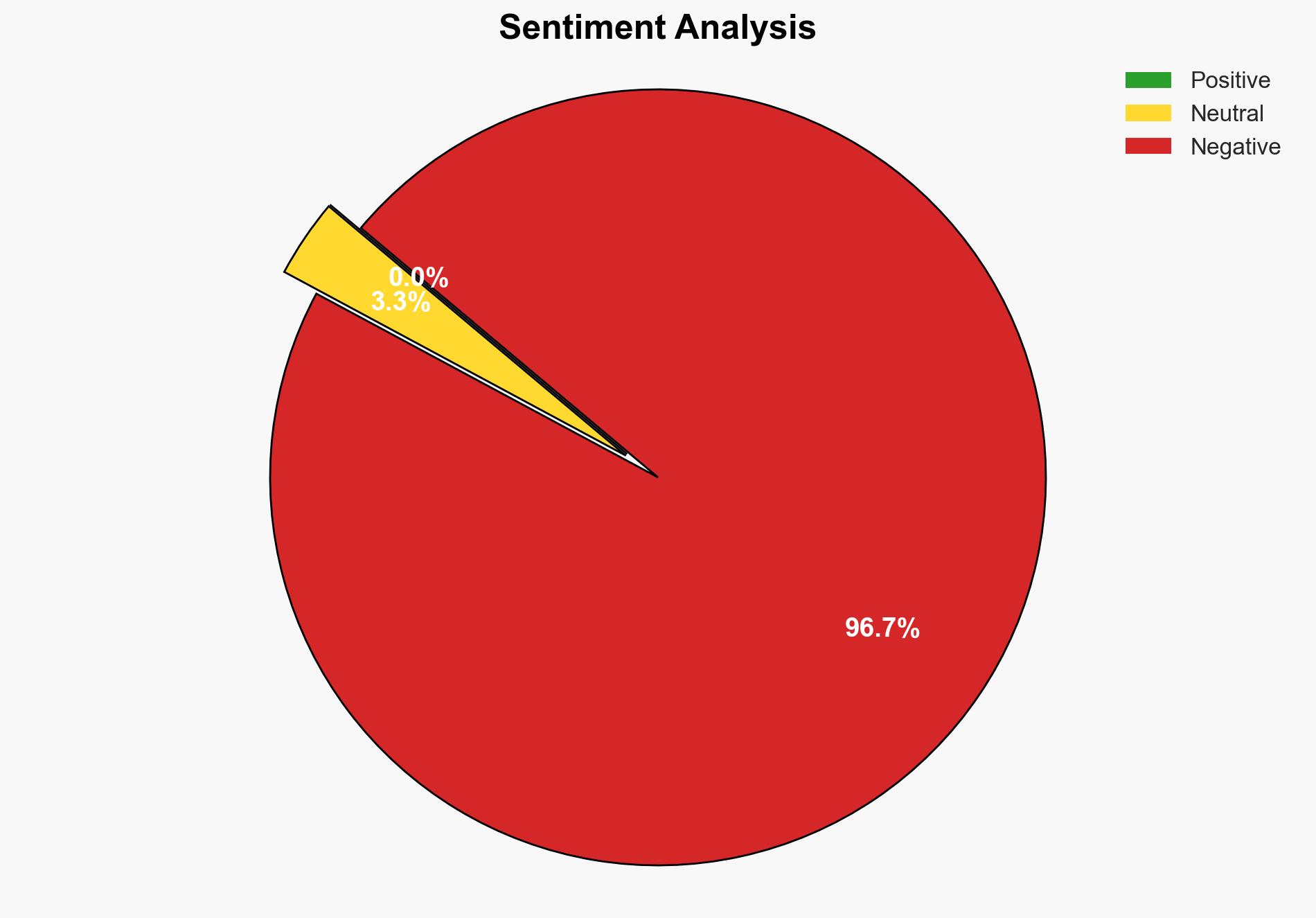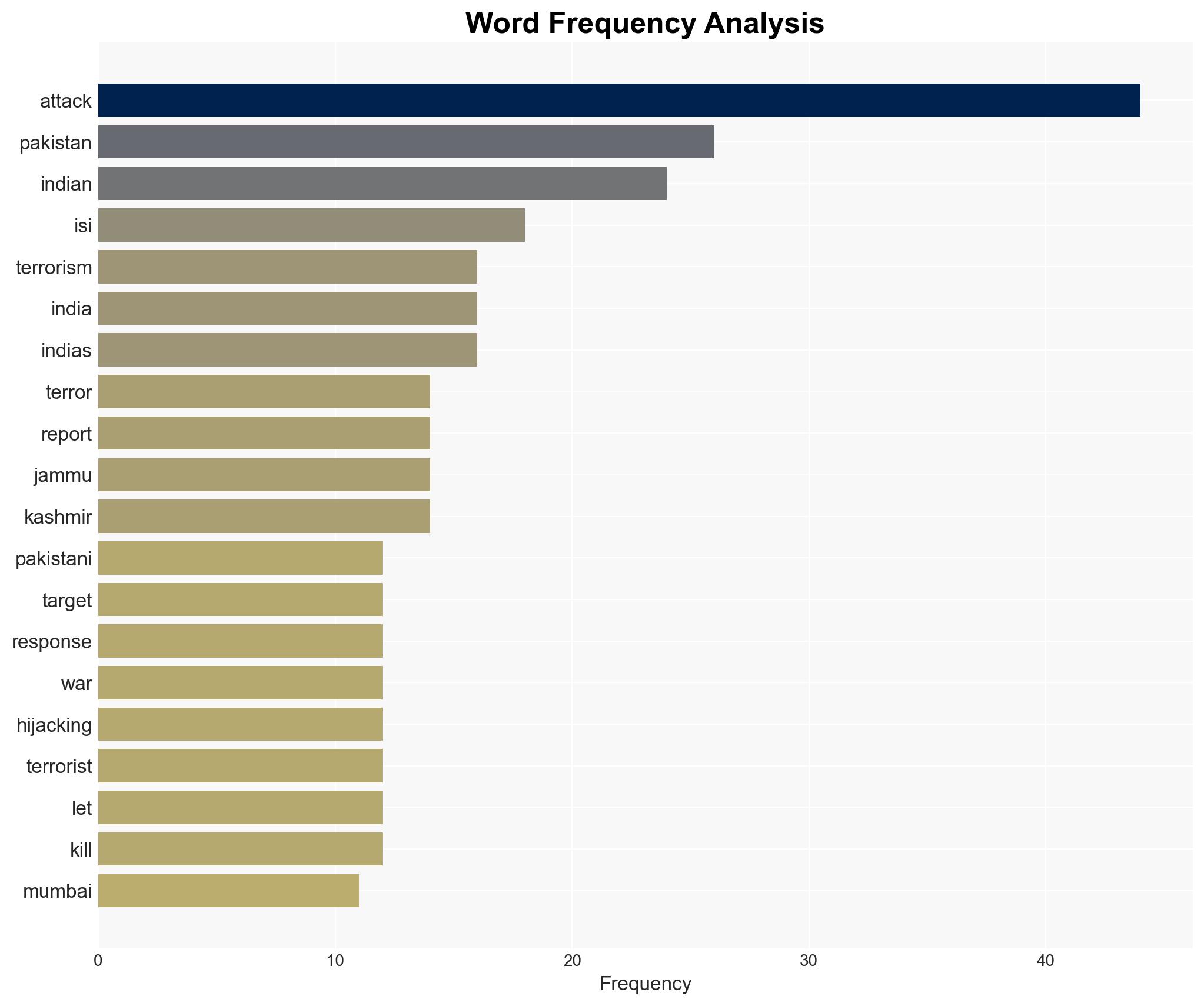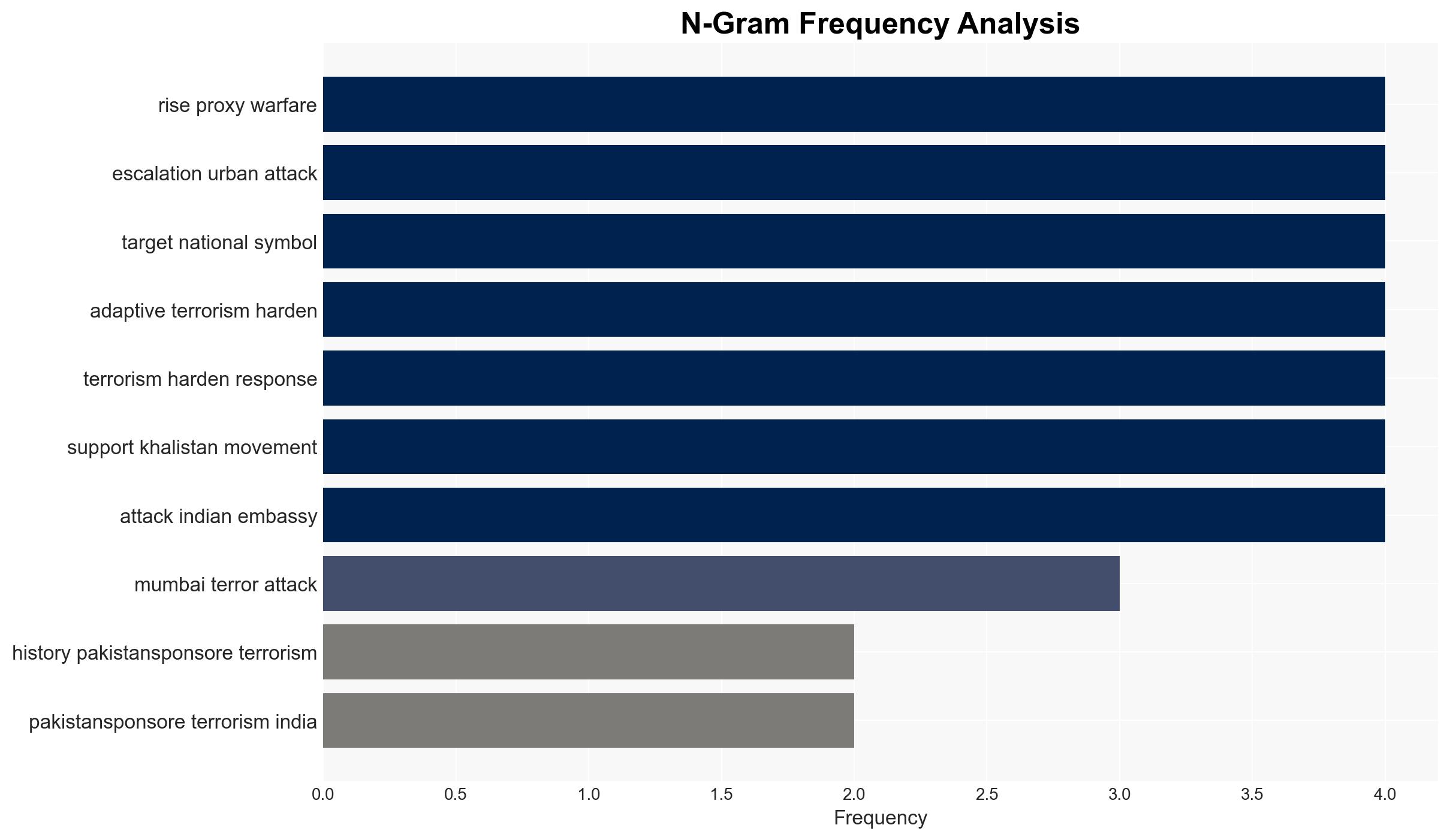Pakistan’s Longstanding Strategy of State-Sponsored Terrorism Against India Since 1947, Report Reveals
Published on: 2025-11-26
AI-powered OSINT brief from verified open sources. Automated NLP signal extraction with human verification. See our Methodology and Why WorldWideWatchers.
Intelligence Report:
1. BLUF (Bottom Line Up Front)
The strategic judgment is that Pakistan has consistently used terrorism as a state policy to destabilize India, with a high confidence level. The most supported hypothesis is that Pakistan’s military and intelligence agencies, particularly the ISI, have orchestrated and supported terrorist activities against India as part of a broader strategy of hybrid warfare. Recommended actions include enhancing diplomatic efforts to isolate Pakistan internationally, strengthening counter-terrorism cooperation with key allies, and increasing intelligence-sharing mechanisms.
2. Competing Hypotheses
Hypothesis 1: Pakistan’s military and intelligence agencies have systematically used terrorism as a tool of state policy against India since 1947. This is supported by historical patterns of attacks, documented evidence of ISI involvement, and Pakistan’s strategic interest in destabilizing India.
Hypothesis 2: Terrorist activities originating from Pakistan are primarily the result of non-state actors operating independently, with limited or no direct state sponsorship. This hypothesis considers the possibility of rogue elements within Pakistan’s military or intelligence agencies acting without official sanction.
The first hypothesis is more likely given the consistent pattern of attacks, the strategic objectives served by such actions, and the documented involvement of state apparatus in supporting insurgencies and terrorist activities.
3. Key Assumptions and Red Flags
Assumptions: The analysis assumes that the information provided by the NatStrat report is accurate and unbiased. It also assumes that Pakistan’s strategic objectives have remained consistent over time.
Red Flags: Potential bias in the source, given its Indian origin and possible nationalistic perspectives. The possibility of deception by Pakistan in masking state involvement in terrorism.
4. Implications and Strategic Risks
The continued use of terrorism as a state policy by Pakistan poses significant risks of escalation, including military conflict between two nuclear-armed states. It also threatens regional stability and could lead to increased international isolation for Pakistan. Cyber and informational warfare could be used to further exacerbate tensions, while economic impacts could arise from disrupted trade and investment in the region.
5. Recommendations and Outlook
- Enhance diplomatic efforts to build a coalition against state-sponsored terrorism, isolating Pakistan on the international stage.
- Strengthen counter-terrorism cooperation with allies, focusing on intelligence-sharing and joint operations.
- Invest in cyber defense capabilities to protect against potential cyber-attacks linked to state-sponsored terrorism.
- Best-case scenario: Pakistan ceases support for terrorism under international pressure, leading to improved bilateral relations.
- Worst-case scenario: Escalation into full-scale military conflict, with significant regional and global implications.
- Most-likely scenario: Continued low-intensity conflict with periodic terrorist attacks and diplomatic tensions.
6. Key Individuals and Entities
Pankaj Saran – Convenor of NatStrat, former Deputy National Security Advisor of India.
Inter-Services Intelligence (ISI) – Pakistan’s intelligence agency implicated in supporting terrorism.
7. Thematic Tags
Structured Analytic Techniques Applied
- ACH 2.0: Reconstruct likely threat actor intentions via hypothesis testing and structured refutation.
- Indicators Development: Track radicalization signals and propaganda patterns to anticipate operational planning.
- Narrative Pattern Analysis: Deconstruct and track propaganda or influence narratives.
Explore more:
Counter-Terrorism Briefs ·
Daily Summary ·
Support us





